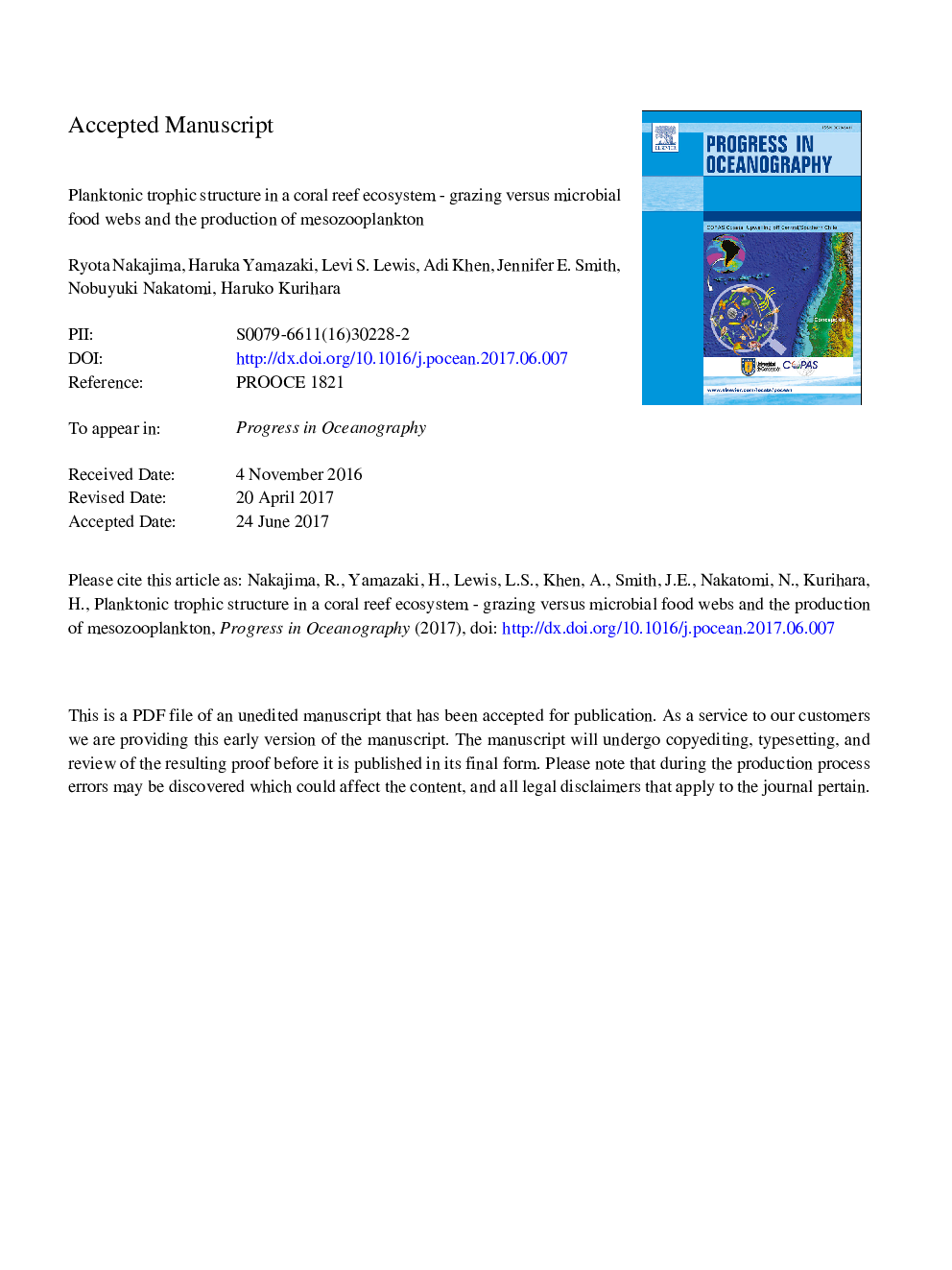| کد مقاله | کد نشریه | سال انتشار | مقاله انگلیسی | نسخه تمام متن |
|---|---|---|---|---|
| 5766478 | 1627902 | 2017 | 55 صفحه PDF | دانلود رایگان |
عنوان انگلیسی مقاله ISI
Planktonic trophic structure in a coral reef ecosystem - Grazing versus microbial food webs and the production of mesozooplankton
ترجمه فارسی عنوان
ساختار طوفیک پلانکتون در اکوسیستم مرجانی صخره - گوسفند در مقابل وب سایتهای مواد غذایی میکروبی و تولید مزوزوپلانکتون
دانلود مقاله + سفارش ترجمه
دانلود مقاله ISI انگلیسی
رایگان برای ایرانیان
کلمات کلیدی
موضوعات مرتبط
مهندسی و علوم پایه
علوم زمین و سیارات
زمین شناسی
چکیده انگلیسی
The relative contributions of grazing versus microbial food webs to the production of mesozooplankton communities in coral reef ecosystems remains an important and understudied field of inquiry. Here, we investigated the biomass and production of component organisms within these two food webs, and compared them to those of mesozooplankton on a coral reef in Okinawa, Japan throughout four seasons in 2011-2012. The relative production of grazing (phytoplankton) and microbial (nano and microzooplankton) food webs were on average 39% (7-77%) and 37% (19-57%), respectively, of the food requirements of particle-feeding mesozooplankton. Carbon flows within this planktonic food web suggested that primary production from the grazing food web could not satisfy the nutritional demands of mesozooplankton, and that the microbial food web contributed a significant amount of nutrition to their diets. These results also show that the heterotrophic components of the microbial food web (nano and microzooplankton) and mesozooplankton consume the equivalent of the entire phytoplankton production (particulate net production) each day, while the microzooplankton were almost entirely eaten by higher trophic levels (mesozooplankton) each day. However, even the combined production from both the grazing and microbial food webs did not fulfill mesozooplankton food requirements in some seasons, explaining 26-53%, suggesting that detritus was used to compensate for nutritional deficiencies during these periods. Understanding the flow of energy throughout coral reefs requires a detailed accounting of pelagic sources and sinks of carbon. Our results provide such an assessment and indicate that detailed investigation on the origin and production of detritus is necessary to better understand pelagic trophodynamics in coral ecosystems.
ناشر
Database: Elsevier - ScienceDirect (ساینس دایرکت)
Journal: Progress in Oceanography - Volume 156, August 2017, Pages 104-120
Journal: Progress in Oceanography - Volume 156, August 2017, Pages 104-120
نویسندگان
Ryota Nakajima, Haruka Yamazaki, Levi S. Lewis, Adi Khen, Jennifer E. Smith, Nobuyuki Nakatomi, Haruko Kurihara,
